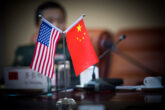July 24, 2018
PacNet #46 - Kim Jong Un’s Long Game
Welcome to North Korean Negotiations 101. North Korea’s reaction to Secretary of State Mike Pompeo’s recent visit to Pyongyang was expected and does not signal the end of the diplomatic process; it just shows us it will be a long and difficult one. On top of dealing with North Korean-style negotiations, President Donald Trump already made important concessions too soon before concrete North Korean denuclearization steps while Kim is playing a long game, looking 40 to 50 years down the road. Trump, on the other hand, seems to be focused on the next 2.5 years, until the next US presidential election in 2020.
A successful diplomatic process will depend on three things: First, whether North Korea agrees to declare all of its nuclear inventory and submit to intrusive verification measures; second, whether all sides can agree on a sequence for denuclearization, security guarantees, and peace; and third, whether President Trump has the political commitment and patience to see this through. If diplomacy fails, and the Trump administration only manages to place a Band-Aid over the problem, the result could be an economically vibrant, nuclear-armed North Korea that enjoys normal relations with Washington.
Round one, Kim. The winner of the first round of negotiations in Singapore was undisputedly Kim Jong Un—and by extension, Chinese President Xi Jinping—because Trump revealed Washington’s ultimate bargaining card too soon: US troop withdrawal from Korea. Another major summit success for North Korea was that Trump accepted Pyongyang’s decades-old demand that the United States and South Korea cancel their joint military drills. To be sure, the joint drills have been cancelled before, but that was in 1992, before Pyongyang had nuclear weapons and inter-continental ballistic missiles. The longer the soldiers do not train and exercise, the more their readiness declines, and the weaker the rationale becomes for justifying their presence on the peninsula from Pyongyang and Beijing’s point of view.
Read the Full Article at CSIS
More from CNAS
-
“The Ayatollah Has No Clothes” – with Rich Goldberg and Richard Fontaine
Richard Fontaine is CEO of the Center for American Security, joins Call Me Back to assess the threat FROM Iran and the threat TO Iran. Listen to the full episode on Call Me ...
By Richard Fontaine
-
Lost Decade - The U.S. Pivot to Asia and the Rise of Chinese Power with Richard Fontaine
Richard Fontaine, CEO of the Center for a New American Security, joins Coffee & Conflict to discuss his book The U.S. Pivot to Asia and the Rise of Chinese Power. He dives int...
By Richard Fontaine
-
Sharper: Allies and Partners
Amid intensifying geopolitical challenges, the United States is finding new ways to address security issues by cultivating and strengthening alliances and partnerships. How ca...
By Gwendolyn Nowaczyk & Charles Horn
-
What Can the US Expect From Sri Lanka’s New President?
Washington views Sri Lanka as a “lynchpin” of its Indo-Pacific strategy and seeks a partner committed to strengthening the democratic process and economic governance while pro...
By Keerthi Martyn




